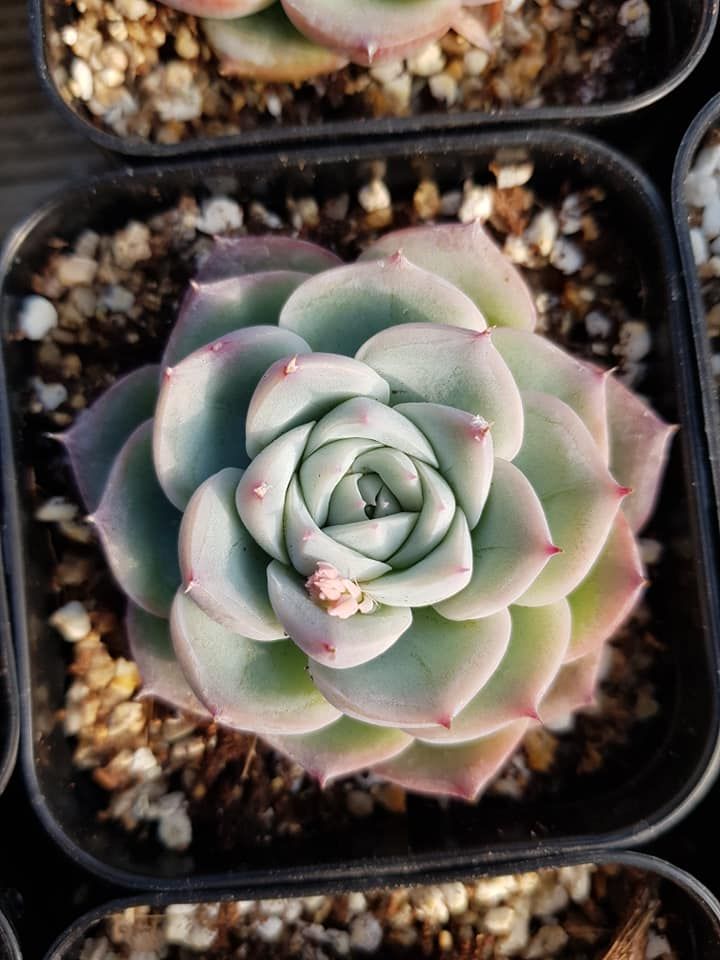Echeveria Lovely Rose: A Comprehensive Guide
Echeveria Lovely Rose Overview
Are you looking for a beautiful succulent to add to your garden or indoor plant collection? Look no further than the Echeveria Lovely Rose, a stunning plant that is sure to turn heads with its unique coloring and rosette shape.
The Echeveria Lovely Rose is a hybrid of two other popular Echeveria varieties, the Echeveria Lilacina and the Echeveria Derenbergii. The plant features a rose-like shape with leaves that are light green at the base and gradually darken to a deep pink or red color at the tips.
How to Care for Your Echeveria Lovely Rose
Lighting Requirements
The Echeveria Lovely Rose thrives in bright, indirect sunlight. If you're growing your plant indoors, place it near a south-facing window or under a grow light. If you're growing your plant outdoors, choose a spot where it will receive plenty of morning sun, but avoid placing it in direct afternoon sun, as this can scorch the leaves.
Soil Needs
To keep your Echeveria Lovely Rose happy and healthy, use well-draining soil that is specifically formulated for succulents. You can also add perlite or sand to regular potting soil to improve drainage.
Watering Tips
One of the most important things to remember when caring for your Echeveria Lovely Rose is to avoid over-watering. These plants are susceptible to root rot if they are sitting in water for too long. Instead, water your plant deeply once a week, allowing the soil to dry out completely between waterings. During the winter months, you can cut back on watering even further.
Fertilizer Needs
During the growing season (spring and summer), you can fertilize your Echeveria Lovely Rose every two to four weeks with a succulent-specific fertilizer. However, avoid fertilizing during the winter months, as this can cause damage to the plant.
Propagation Methods for Echeveria Lovely Rose
Leaf Propagation
One of the easiest ways to propagate your Echeveria Lovely Rose is through leaf propagation. Simply remove a healthy leaf from the mother plant and allow it to callus over for a few days. Then, place the leaf on top of well-draining soil and mist it lightly with water. Keep the soil moist, but not wet, and in a few weeks, you should see roots and new growth beginning to form.
Stem Cutting Propagation
You can also propagate your Echeveria Lovely Rose using stem cuttings. Cut a stem from the mother plant and allow it to callus over for a few days. Then, plant the stem cutting in well-draining soil and keep it moist until new growth begins to appear.
Common Pests and Diseases
Mealybugs
One of the most common pests that affect Echeveria Lovely Rose plants is mealybugs. These small, white insects feed on the sap of the plant and can cause stunted growth and yellowing leaves. To get rid of mealybugs, gently wipe the affected areas with a cotton swab dipped in rubbing alcohol.
Rot
Rot is another common problem that can affect Echeveria Lovely Rose plants. This can be caused by over-watering or by planting the plant in soil that does not drain well. To prevent rot, make sure your plant is not sitting in water and use well-draining soil.
FAQs
Q: How often should I water my Echeveria Lovely Rose?
A: You should water your Echeveria Lovely Rose deeply once a week, allowing the soil to dry out completely between waterings.
Q: Can I grow an Echeveria Lovely Rose indoors?
A: Yes, you can grow an Echeveria Lovely Rose indoors. Just make sure to place it near a south-facing window or under a grow light to ensure it gets enough light.
Q: What kind of soil should I use for my Echeveria Lovely Rose?
A: Use well-draining soil that is specifically formulated for succulents. You can also add perlite or sand to regular potting soil to improve drainage.
Q: How do I propagate my Echeveria Lovely Rose?
A: You can propagate your Echeveria Lovely Rose using leaf propagation or stem cutting propagation.
Q: How do I get rid of mealybugs on my Echeveria Lovely Rose?
A: Gently wipe the affected areas with a cotton swab dipped in rubbing alcohol.










Post a Comment for "Echeveria Lovely Rose: A Comprehensive Guide"